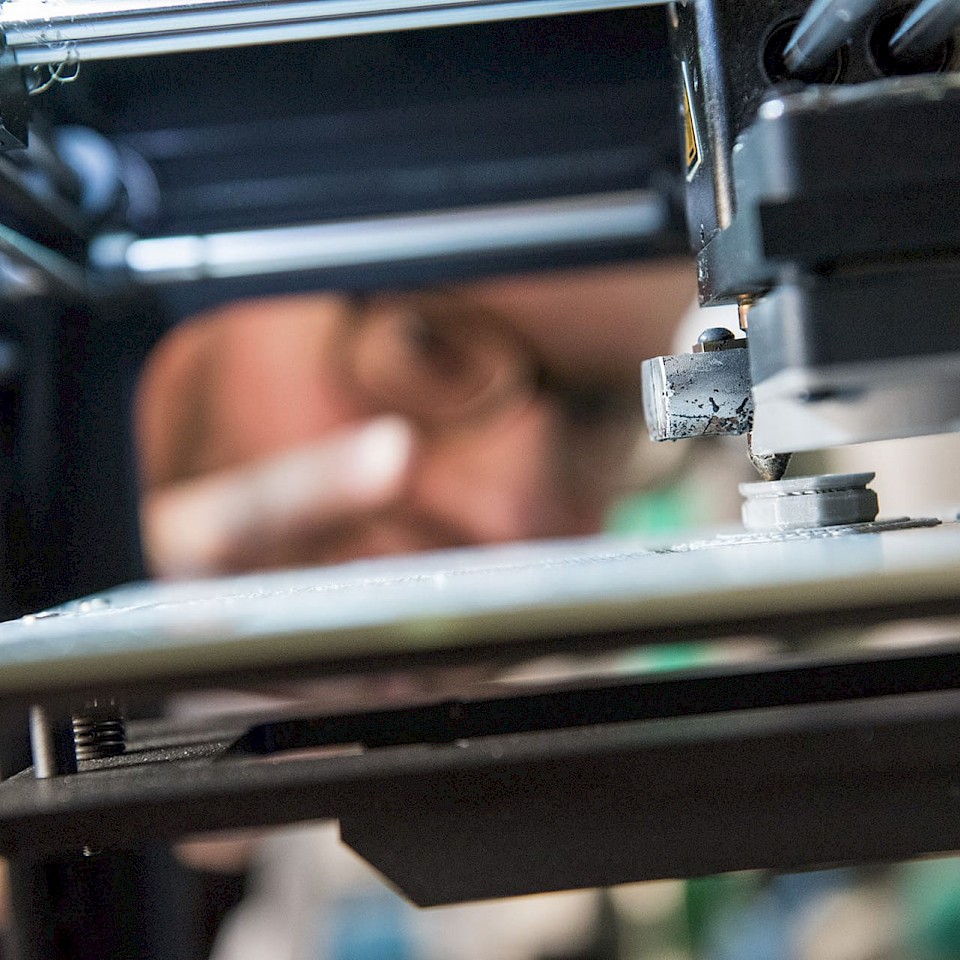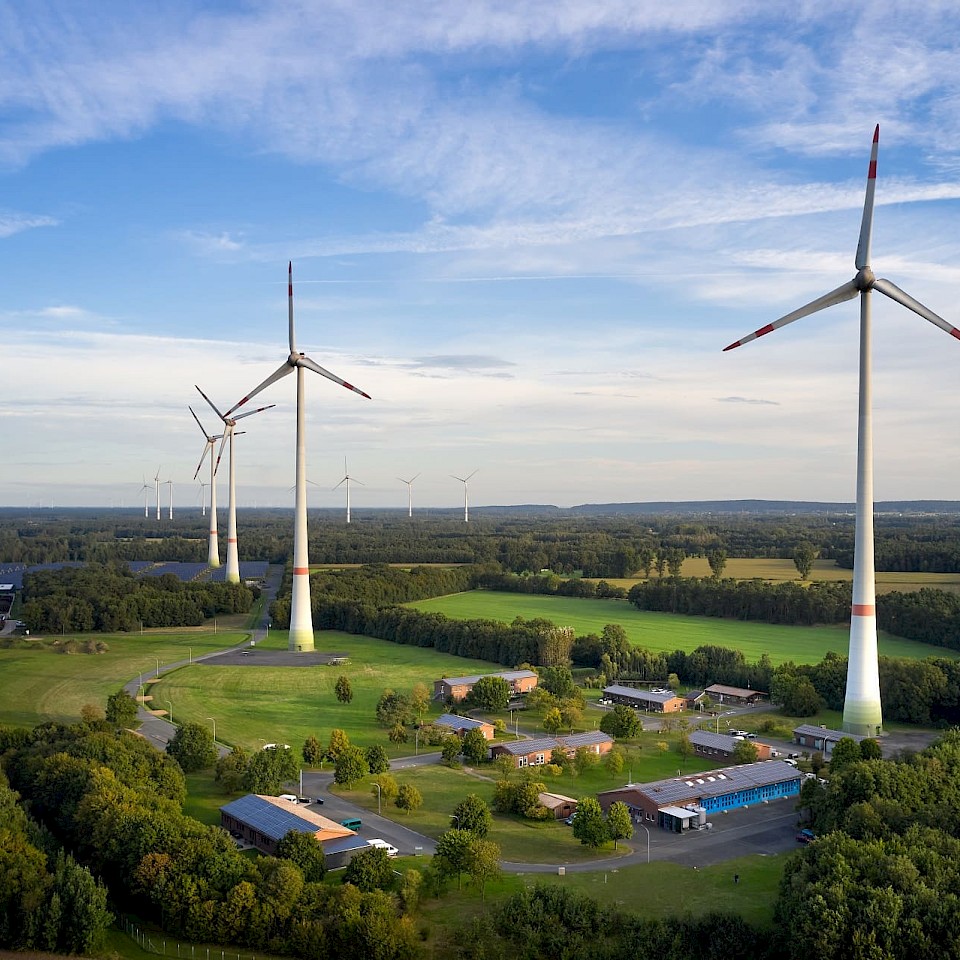
© Velener Textil
Sustainable use of leftovers: High-quality yarn in a closed-loop system
VELENER TEXTIL GmbH, Wilh. Wülfing GmbH & Co. KG and Büngern-Technik Workshop for the Disabled
In weaving mills and ready-made clothing factories, masses of fabrics and yarns are thrown away every day, yet the leftovers are of the best quality. Velener Textil GmbH has developed a no-waste cycle that not only conserves resources but also contributes to inclusion.
The innovation story in video
VELENER TEXTIL GmbH, Velen
Velener Textil GmbH is a family business from Velen with around 100 employees. With well-trained employees and modern machinery with the latest spinning and weaving technology, the company produces yarns and fabrics of the highest quality.
Wilh. Wülfing GmbH & Co. KG, Borken
Wilh. Wülfing GmbH & Co. KG with its Dormisette brand is an internationally active textile company with over 130 years of experience in the market. By producing high-quality home textiles, the family-owned company from Borken has succeeded in establishing itself as a well-known brand manufacturer both at home and abroad.
Büngern-Technik workshop for the disabled, Rhede-Büngern
Büngern-Technik is a recognised workshop for people with disabilities run by the Caritasverband Bocholt e.V. More than 800 people with disabilities are enabled to participate in working life at four locations. The workshop for people with disabilities was founded in Büngern-Rhede in 1969.
Challenge: Waste of raw materials
Weaving mills and clothing manufacturers have a problem with regard to their resources: every day, the best cotton fabrics and yarns end up in the rubbish because, for technical reasons, some of the yarn always remains on the bobbin during weaving and often a lot of fabric is left over after cutting. In some cases, up to 25 percent of the unused, impeccable raw material is wasted. So far, this material is not used any further - on the contrary: it has to be disposed of, which costs additional money.
Solution approach: No-waste recycling system

© Velener Textil GmbH
Velener Textil GmbH has established the WECYCLED® no-waste recycling system. The company sets up collection boxes at partner companies such as Wilh. Wülfing GmbH & Co. KG and collects the unused cotton scraps free of charge. In workshops for the disabled in Münsterland, the employees then separate the yarn from the cardboard bobbin. Both raw materials are thus pure again. The cardboard is recycled, the yarn remnants go back to Velener Textil. There, the yarns and the fabric are dissolved down to the individual fibre.
The processed cotton is thus turned into individual fibres again, thanks to a purely mechanical process without the use of chemicals. The resulting WECYCLED® fibres are, however, quite short and are therefore mixed with fresh and high-quality raw cotton from sustainable cultivation and thus processed into yarns again. Velener Textil GmbH then delivers the fresh WECYCLED® yarns neatly wound onto bobbins to its partners.
Success: Sustainability arrives

© Velener Textil GmbH
There is great interest in the WECYCLED® recycling system. Velener Textil GmbH is planning to set up collection containers at other partner companies and thus recycle the yarn remnants together with them and save money. Bed linen made by Wilh. Wülfing GmbH & Co. KG from WECYCLED® yarn is sold every year in a sustainability campaign at a large German discounter.
Another well-known buyer of WECYCLED® yarns is Hess Natur-Textilien GmbH & Co KG from Butzbach, which sells sustainable fashion under the hessnatur brand. The WECYCLED® system also contributes to inclusion, as the separation of the yarn remnants from their cardboard bobbins is done by people with disabilities.
As a regional joint initiative, Enabling Networks Münsterland supports companies and universities in the Münsterland region in developing innovations, implementing them and finding the right partners for the project. In order to show how innovative and at the same time cooperative Münsterland already is, the project also went in search of innovative cooperation projects from the region. The results are presented on this page. The Enabling Networks Münsterland project is funded by the European Union and the NRW Ministry of Economics as part of the ERDF call "Regio.NRW".












